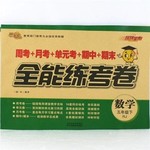
���IJ��֣�����������20�֣�
С�����Ϻ���һ����������������2010���Ϻ��������ϵ�һ��־Ը�ߣ�������μ���һЩ��ѵ������ѵ�����˽��Ҫ����־Ը�ߣ�����Ҫѧ�������⣬��Ҫ�˽ⲻͬ���ҵ������ֻ���������ܸ��õذ���������ѣ����ö�����. С�վ��ú���Ȥ������������˽��֪ʶд�Ÿ���������صı��ѨD�DС��������������С�յ�����д����ţ���Ҫ���������Ҫ�㣺
��ͬ�Ļ��в�ͬ�������
���������飬�������˻������֣����DZ˴˵�����
�ж������ر�����˹�ֹ��ҵ����˼�˵����վ�ýϽ������Ը�Ůֻ�ǵ�ͷ��
�Ӳ��븾Ů������Ӵ���
һ����˵��ȫ����ļ��涼���֣����ձ��˸�ϲ���Ϲ���
����������塣
ע�⣺
ע�����ŵĸ�ʽ
2. ��Ҫ�������ķ���Ҫ�㣬�ɸ�����Ҫ�ʵ����ӡ�
3. ����100-120���� (���¿�ͷ�ͽ�β�Ѹ�, ���������)
Dear Xiao Ming
Glad to write to you! Last time I told you that I wanted to be a volunteer in the 2010 Shanghai Expo. These days I am attending some training courses and learn that in order to be a good volunteer, we should learn about body language as well as foreign languages. I find it interesting. I��d like to share it with you.
So much for these, I must stop now. Looking forward to your letter.
Yours,
Xiao Gang
Dear Xiao Ming
Glad to write to you! Last time I told you that I wanted to be a volunteer in the 2010 shanghai Expo. These days I am attending some training courses and learn that in order to be a good volunteer, we should learn about body language as well as foreign languages. I find it interesting. I'd like to share it with you.
As we all know, every culture has its own body language. Take greetings for example��The French are open-minded, they shake hands and kiss each other on each cheek when they meet people they know. Men from Middle East and other Muslin countries often stand close to other men to talk, but they will never touch women, they just nod at women. In general, people all over the world now greet each other by shaking hands, but the Japanese prefer to bow.
None of these actions is either good or bad, however, studying it will help reduce misunderstanding between peoples and avoid the difficulties in communication.
So much for these, I must stop now. Looking forward to your letter.
Yours
Xiao Gang


 ȫ��������ϵ�д�
ȫ��������ϵ�д� һ��һ����ʱ���ϵ�д�
һ��һ����ʱ���ϵ�д�
| �꼶 | ���пγ� | �꼶 | ���пγ� |
| ��һ | ��һ��ѿγ��Ƽ��� | ��һ | ��һ��ѿγ��Ƽ��� |
| �߶� | �߶���ѿγ��Ƽ��� | ���� | ������ѿγ��Ƽ��� |
| ���� | ������ѿγ��Ƽ��� | ���� | ������ѿγ��Ƽ��� |
��Ŀ������Ӣ�� ��Դ�������г�����2010������ڶ�ѧ��ͳһ���ԣ�������Ӣ� ���ͣ�д����
���IJ��֣������������ڣ�35�֣�
��һ�ڣ��龰���ģ�20�֣�
����������������ܽ��е��о���ѧϰ��У����ͬѧ�˽�����ϡ�����˿��������Ϣ����������б������ṩ�����ݣ�����ı���Peterд���ţ��������ܴ˴λ��
ע�⣺
1���ŵĿ�ͷ�ͽ�β��Ϊ��д�á�
2������������60��
��ʾ�ʣ��о���ѧϰ��inquiring learning ��˿�golden monkeys
| ��һ�� | �ڶ��� |
| �����۲��˿������� | �������˽��˿����������� |
| ��ȥͼ��ݲ��Ľ�˿���ϰ�� | ����ר�ҽ��ܶԽ�˿��ı�����ʩ |
| �������Ϣ����ɱ��� | |
| ����ѧ������������µ�ѧϰ��ʽ | |
�鿴�𰸺ͽ���>>
��Ŀ������Ӣ�� ��Դ������ʡ2009-1010ѧ��ȸ�һ��һѧ����ĩ�������� ���ͣ��������Ķ�?
���IJ��֣� �����������ڣ� ����35�֣�
��һ�� ��� �� ��10С�⣻ÿС��1�֣� ����10�֣�
�Ķ����ģ����������������ĺ�76--85�Ŀո��������ʵ��ĵ��ʻ��� ������תд������ϡ�ע�⣺ÿ�ղ�����3�����ʡ�
In many English homes four meals are served; they are breakfast, lunch, tea and dinner. These are the meals that are served in the homes of people who are well to do.
Breakfast may be served any time for seven to nine. It consist of porridge, bacon and eggs (boiled or fried), butter toast or bread-and-butter with marmalade (�����). Instead of bacon and eggs, fish may be served. Either tea or coffee is drunk at breakfast.
Lunch comes at about one o��clock. It generally consists of cold meat (left over from yesterday��s dinner), potatoes, and salad. After that there is bread or biscuits and cheese. Most people drink water at lunchtime; some drink beer or wine. It is not the custom to drink the spirits (���Ծ�) like whisky or brandy even wealthy homes in the middle of the day.
Afternoon tea, taken between four and five, is the most informal meal of the day. If you are a friend of the family you may drop in for tea without an invitation or telling them that you are coming. Each person has a cup and saucer, a spoon and a small plate for bread-and-butter and cake. By the way, do not help yourself to cake first; bread-and-butter first, and then cake if there is any. Another piece of advice: do not put more than one piece of bread or cake on your plate at the same time.
Dinner is the most substantial (��ʢ��) meal of the day and is a very formal meal. Many people even wear special clothes for dinner, so if you are asked out of dinner you must find out whether you are expected to wear a dinner suit; for you would feel very embarrassed if, when you go there, you were the only person in ordinary clothes. Dinner is generally served at about half past seven. All the members of the family sit down together and are on their best behavior. The head of the family sits at one end of the table; his wife sits at the other. If there is a guest, he generally sits in the place of honor, which is at the right of lady of the house. If there are several guests the most important is asked to sit there. During the meal conservation is carried on, you should try to get into the conversation with the person on your right or left, but you should not try to talk to someone who is a long way from you.
Title: 76._______________________
|
77. ___________ |
79. _____________ |
Food |
Drinks |
Notes |
|
Breakfast |
7 to 9 a.m. |
Porridge, bacon & eggs, etc |
83. ________________ |
|
|
Lunch |
80. _____________ |
Cold meat, potatoes, salad, bread, biscuits & cheese |
84. ________________
|
|
|
Afternoon tea |
4 to 5 p.m. |
82. ______________________ |
tea |
85. __________ |
|
78. ___________ |
81. _____________ |
|
|
Most formal |
�鿴�𰸺ͽ���>>
��Ŀ������Ӣ�� ��Դ������ʡ������20092010ѧ��ȸ߶���ѧ����ĩ�����Ծ���Ӣ� ���ͣ�������
���IJ��֣������������ڣ�����40�֣�
��һ�ڣ���ɾ��ӣ���10С�⣻ÿС��1.5�֣�����15�֣�
�Ķ����и�С�⣬���������ڵĺ�����ʾ���þ�ĩ�����ڵ�Ӣ�ﵥ����ɾ��ӣ�������д�ڴ���ϵ���Ӧ��ź�
71._______________(�dz����)they failed to grasp the key points of what I said just now .(likely)
72. Our company insisted on__________ (ǩ��һ��Э��) them in case there was a sudden change when cooperating. (agreement)
73. Water, which seems so simple and common, is ______________(ʹ������Ϊ���ܵĶ���.��what��
74. Martin Luther King.Jr _______________(�ԡ���������)a freedom fighter for equal rights of black people in America . (know)
75. ____________�������ڣ�the beautiful scenery at the Copacabana Beach , he decided to come again the following year . (amaze)
76. How he regretted what he had wasted before, for it is impossible for lost time ____________.(�ֲ�����) (make )
77. It is believed that he __________________(���ܲ�����)in planning the monument, or in helping transport and pull up the stones. (hand)
78.________(�����ҪѰ�����)when you are in trouble, please contact us and we are always here waiting for you. (should)
79.The world is changing fast, and we are said __________________(��������) the ��Information Age��, a time of new discoveries and great changes. (live)
80. Only if you show mercy yourself______________________(�����ϣ���õ�) mercy. (hope)
�鿴�𰸺ͽ���>>
��Ŀ������Ӣ�� ��Դ���Ĵ�ʡ2009-2010ѧ���һ��ѧ�����п������⣨Ӣ� ���ͣ����ĸĴ�
�ڶ��� д������35�֣�
���IJ��֣������������ڣ�35�֣�
��һ�� ���ĸĴ�����10С�⣻ÿС��1�֣�����10�֣�
����Ҫ��������������еĴ��Ա�����ŵ�ÿһ�������жϣ��������ڸ����ұߺ����ϻ�һ�������̣������д���ÿ��ֻ��һ���������������������
���ж�һ���ʣ��Ѷ���Ĵ���б�ߣ�\���������ڸ����ұߺ�����д���ôʣ���Ҳ��б������
����ȱһ���ʣ���ȱ�ʴ���һ��©�ַ��ţ�^��,�ڸ����ұߺ�����д���üӵĴʡ�
���д�һ���ʣ��ڴ��Ĵ��»�һ���ߣ��ڸ����ұߺ�����д��������Ĵʡ�
ע�⣺ԭ��û�д��IJ�Ҫ�ġ�
On March 12th, we went to plant trees on the hill near to 76. ?
our school. The boys were made dig pits(��).The 77. ?
girls were told to plant the young trees into the pits. 78. ?
All of us worked very hardly. Soon we were all wet 79. ?
with sweat. After the young trees planted, we 80. ? ?
began to water it. The water was at the foot of 81. ? ?
the hill. But we stood in line to pass pails(Ͱ) 82. ? ?
of water from one to other up to the hill. 83. ?
We did not finish water the trees until it 84. ?
was dark. Though we were tired, we feel very happy. 85 ?
�鿴�𰸺ͽ���>>
��Ŀ������Ӣ�� ��Դ��2009����ͨ�ߵ�ѧУ����ȫ��ͳһ���Խ��վ�Ӣ������ ���ͣ��������
��2009.���������������������ڣ�35�֣�
��һ�ڣ� �龰���ģ�20�֣�
�������Ǻ�����ѧ����һ���ѧ�����Ϊ��Ӧ�̻�����ĺ��٣��������ʮ����ȥ����ֲ��������������ķ�ͼ���Ⱥ�˳����ֲ�����ȫ���̣���ijӢ����־�ġ���ɫ�ж���ר��дһƪ�ԡ�Green Action in Our Class��Ϊ���Ӣ�ĸ����
ע�⣺����������60
��ʾ�ʣ����� suburbs

�ڶ��� �������ģ�15�֣�
�����������ʾ��дһƪ���ģ�����������50
In your spoken English class, your teacher shows you the following picture. You are asked to describe the picture and explain how you understand it.

���IJ��֣���������������ڣ�35�֣�
��һ�� �龰���ģ�20�֣�
һ������Ҫ�㣺
1�� �ﳵȥֲ��
2�� ֲ��
3�� ������ʾ��
4�� ����
����˵����
����Ҫ����ò�ͬ��ʽ����
�鿴�𰸺ͽ���>>
����ʡ������Υ���Ͳ�����Ϣ�ٱ�ƽ̨ | �����к���Ϣ�ٱ�ר�� | ����թƭ�ٱ�ר�� | ����ʷ���������к���Ϣ�ٱ�ר�� | ������Ȩ�ٱ�ר��
Υ���Ͳ�����Ϣ�ٱ��绰��027-86699610 �ٱ����䣺58377363@163.com